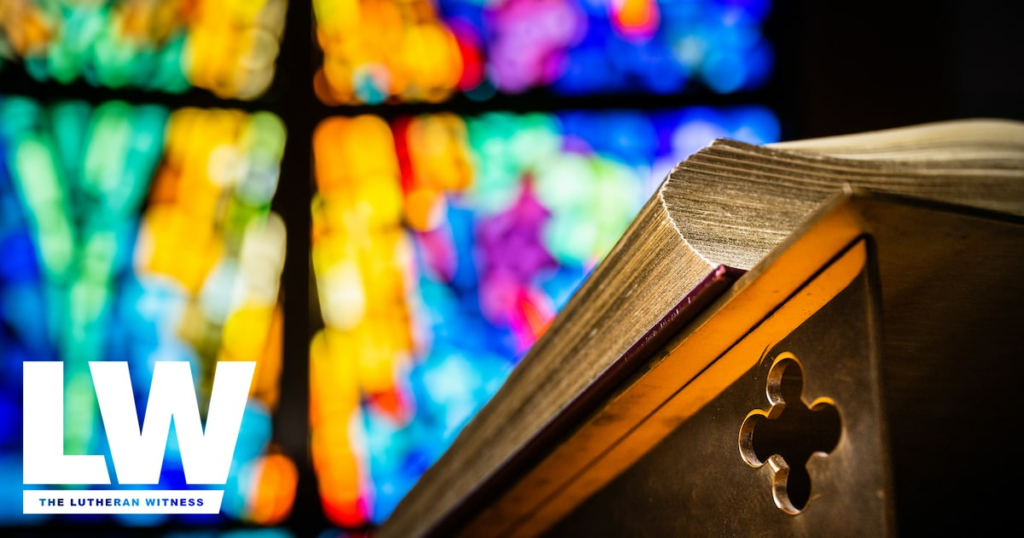Why did God create government in the first place? Learn how God has instituted both church and state, each with its own distinct purpose.
by Rev. Dr. Cameron A. Mackenzie
During the Reformation, Martin Luther taught that God had established both church and state. Relying on pas-sages such as Matt. 22:21 (“Render to Caesar the things that are Caesar’s, and to God the things that are God’s”) and Rom. 13:1 (“Let every person be subject to the governing authorities”), Luther maintained that the Christian faith requires obedience to the state because government derives its authority from God. Such obedience is not absolute (“We must obey God rather than men” [Acts 5:29].), but as long as the state does not require Christians to violate God’s Word, they should obey.
But why did God create government in the first place? Quite simply, for living in the world. While the role of the church is to proclaim the Gospel by which people enjoy eternal life, the state is supposed to promote good and punish evil in this life (Rom. 13:34). This task is absolutely necessary on account of human sinfulness. Left unchecked, sin would turn earthly existence into a nightmare.
Christians, therefore, live in two “kingdoms.” In one, they hear the Gospel and experience the love of God in Christ. In the other, they experienceand obeythe law. Indeed, because God has ordained political authority, Christians not only obey, but they also honor, respect and pray for their rulers (1 Tim. 2:12; 1 Pet. 2:1317). They also pay their taxes (Rom. 13:7)!
So church and state are very different. God has instituted both, but they have distinct purposes and ways of accomplishing their goals. That does not mean that they have nothing to do with each other. History is filled with examples of how the two institutions have interactedas inevitably they mustsometimes for good and sometimes not.
For one thing, the church does its work here and now in the realm governed by the state. Law and order, peace and prosperity are great blessings from God to the church, and the government’s task is to protect them. At the time of the Reformation, Lutherans depended on earthly rulers to defend the Gospel from those who wanted to suppress it by force. These same rulers presented the Augsburg Confession to the emperor and established Lutheran churches in their territories.
Many years later, the founders of The Lutheran Church—Missouri Synod experienced a much different kind of government in America not emperors and princes but a constitutional republic. Nonetheless, they treasured what they found, because it was a land in which they were free to preach, teach and practice their faith without interference from political authorities. In their homeland, the government had been raising obstacles to faithful proclamation, but in the United States, the Constitution guaranteed religious liberty.
Free from interference by the state, the LCMS and its members have established churches, schools and a host of additional institutions by which they proclaim God’s Word and demonstrate God’s love through acts of mercy. But they routinely rely on the government to carry out its responsibilities on their behalf, such as requesting police to help with traffic at funerals or asking the State Department for assistance in protecting missionaries abroad. Religious liberty has not prevented church and state from working together in appropriate ways.
Nor has it prevented the church from claiming its rights under the Constitution. Following the example of St. Paul, who exercised his rights as a Roman citizen by appealing to Caesar (Acts 25:11), the LCMS has used the legal system and sometimes even the political process to advance its mission.
In 1889, for example, when Wisconsin and Illinois legislatures passed laws mandating English in parochial schools, the LCMS protested such infringements upon religious liberty and participated in a campaign to overturn them. In 1976, representatives of the Synod testified before a congressional committee to urge legal protection of the unborn. And as recently as January, the Supreme Court ruled in favor of an LCMS congregation that challenged government efforts to impose regulations on its employment decisions regarding school teachers.
Furthermore, in carrying out its own mandate from God, the church must speak Law as well as Gospel. That often means addressing public questions from the perspective of God’s Word. LCMS conventions have spoken to many issues of this sort: abortion (1971), homosexuality (2001), capital punishment (1967) and gambling (1998). Such statements not only advise LCMS members but also inform the wider public about moral principles that should inform public policy. After all, the government itself is under God’s Law and not its master.
Luther frequently addressed questions like these in his own times, for instance, issues of marriage laws, charging interest, social injustice, rebellion, war and peace and education. Simply put, his “two kingdoms” doctrine does not require rigid separation of church and state. Neither institution should interfere with the unique responsibilities of the other, but when each carries out its own divinely given purpose, it also supports the other’s work.
—
> Go to www.lcms.org/hhsmandate to read the LCMS Council of Presidents’ endorsement of President Harrison’s testimony on the recent HHS mandate.
About the Author: The Rev. Dr. Cameron A. MacKenzie is professor and chairman of historical theology at Concordia Theological Seminary, Fort Wayne.





